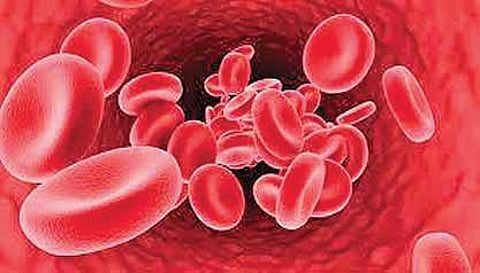

HYDERABAD: A joint study by the Genome Foundation and the Thalassemia and Sickle Cell Society (TSCS) has found that four districts in Telangana are specifically at high risk of the life altering genetic disease Beta -Thalassemia (BTM). The disease is found in high prevalence in Rangareddy, Sangareddy, Mahbubnagar and Khammam districts.
The study found that members of five community groups- Sunni, Lambada, Madiga, Mala and Mudiraj- were getting this genetic disease more often than others.The study titled “Identification and Development of a High Risk District Model in the prevention of Beta-Thalassemia in Telangana state, India”was funded by the Telangana State Council of Science and Technology (TSCOST).The study sample included 312 children affected with BTM who were attending the TSCS, Hyderabad, for free blood transfusions and checkups.
From these children and their parents, in-depth demographic information including the sex-age distribution of the BTM children, ethnic affiliation, etc was taken.The study found that the disease was not rare and limited to any geographical area or community as cases were seen in 31 of 33 districts and 48 local endogamous subpopulations. “The findings of the study are crucial as it not only allows corrective measures, but also allows for the same model of study to be replicated at the district level across the country,” said Professor VR Rao, Lead Author.
Five community groups at risk
The study notes that Sunni (27.2%), Lambada (20.8%), Madiga (12.5%), Mala (4.5%) and Mudiraj (4.5%) contributed 69.5%, and another 43 groups contributed 30.5% of BTM patients of the study sample from
Telangana State.